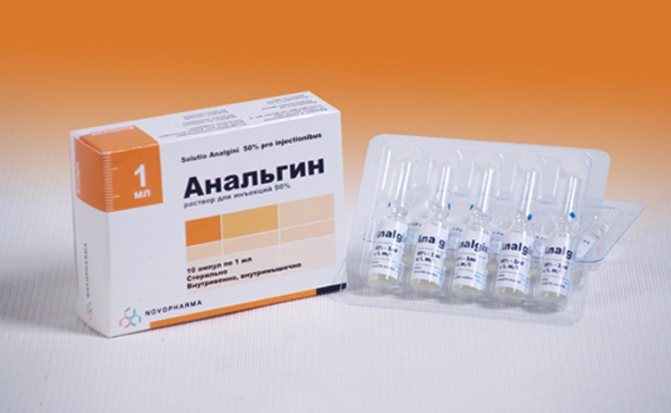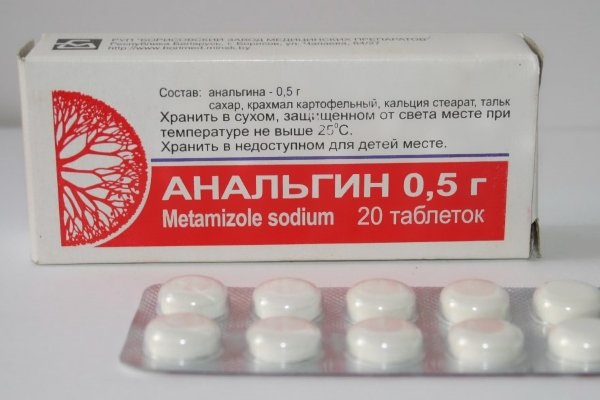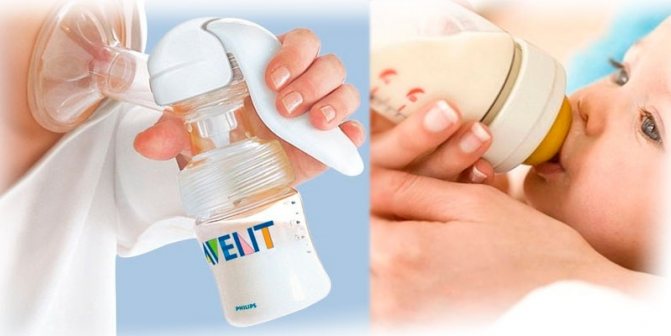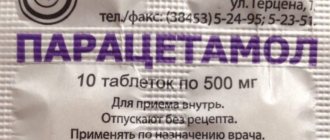What is the drug
Analgin is used to eliminate mild or moderate pain in the head, muscles or some organs. It can reduce the temperature of a person who is feverish. Usually the medicine is used in the form of tablets, but in especially severe cases the patient can be given analgin injections.
The drug, once in the human body, inhibits prostaglandins, which are formed in the blood plasma and affect the human endocrine system. At the same time, the patient's body temperature rises.
Analgin blocks the synthesis of prostaglandins, which relieves pain shock. Patients take the drug 2-3 times a day. The instructions for use of this medication explicitly state that the use of analgin for hepatitis B is unacceptable. It gives many contraindications.
Therefore, the medication is prohibited for the treatment of pregnant women and infants under 3 months of age.
Can Analgin be used while breastfeeding?
All people sometimes feel unwell, and nursing mothers, unfortunately, are no exception. Your head hurts, your teeth hurt, a cold starts - and your hand automatically reaches for the usual analgin.
But are regular pills really that safe? Let's figure out whether it is possible to use analgin while breastfeeding?
What do the instructions for use tell us?
Analgin is produced in two forms: tablets and solution for injection. The active ingredient - metamizole sodium - is present in the medicine in a dosage of 250 or 500 mg.
It is used for pain relief in mild to moderate pain syndrome, and for lowering temperature in febrile conditions. The action of analgin is based on the inhibition of prostaglandins.
These substances, produced in blood cells, act on the hypothalamus, causing the body's endocrine system to increase its temperature.
Usually the tablets are taken orally after meals, one tablet 2 or 3 times a day.
When asked whether analgin can be used while breastfeeding, the instructions for the medicine give a negative answer.
In the “Contraindications” column it is noted that the drug cannot be used while breastfeeding. The use of this drug for the treatment of pregnant women and newborns under three months of age is also prohibited.
One of the reasons for the ban is allergies.
During breastfeeding, a woman should eat properly and carefully monitor her medication intake. Everything that enters the mother’s body is passed on to the baby along with her milk.
A fragile body can produce different reactions to new substances, especially to drug components.
Infants whose mothers used analgin for breastfeeding at least several times experienced an allergic reaction after feeding. Red spots, rashes, and peeling appeared on the skin.
Since reactions manifest themselves differently in everyone, the use of analgin can cause more severe consequences, including anaphylactic shock (pallor of the skin, bluishness of the mucous membranes, cold sweat, swelling of the face and throat, difficulty breathing, drop in blood pressure, abnormal heart rhythm ), which is a potentially fatal condition.
If you have taken the medicine and after feeding your baby you notice allergy symptoms, call an ambulance immediately!
If anaphylactic shock develops, it is useless to give the child antihistamines; only the injection of adrenaline (epinephrine) intramuscularly will help.
Therefore, if your child is prone to allergies, it makes sense to visit an allergist, do the necessary tests and stock up on first aid supplies.
Other negative consequences of using analgin
Metamizole sodium may also be contraindicated for a nursing mother. The drug is not recommended to be taken in the following cases:
- history of bronchospasms;
- liver or kidney problems;
- blood diseases, blood disorders, including anemia, neutropenia, leukopenia;
- previously registered allergic reactions to the drug;
- inflammatory diseases of the mucous membrane of the stomach or intestines.
When analgin enters the child’s body during lactation along with mother’s milk, the most common consequence is disruption of the kidneys and liver.
The drug can affect the process of hematopoiesis, leading to a change in the ratio of red blood cells, leukocytes and platelets in the blood. Less commonly, reactions from the respiratory system can be observed - bronchospasms: difficulty breathing, loss of consciousness due to lack of oxygen.
Very important! The active ingredient of analgin, metamizole sodium, is found in many medications with an analgesic effect.
For example:
- "Baralgin";
- "Antigrippin-ANVI";
- "Took";
- "Pentalgin";
- "Sedalgin";
- "Andipal";
- "Revalgin", etc.
What can you take instead of analgin?
During breastfeeding, the mother should monitor her health very carefully, since any ailment can become complicated and lead to treatment with drugs that require cessation of lactation.
Therefore, when you feel the first signs of the disease, you need to make an appointment with a doctor. He will prescribe the safest medications for the baby, including selecting antipyretics and pain relievers that are allowed during feeding.
During lactation, you should not completely give up medications and endure severe pain and high fever. The painful condition of the mother has a bad effect on the amount of milk. If you are faced with such a situation, see the article: How to increase lactation.
The drugs used should be as safe as possible for the baby.
Another extreme that mothers go to during breastfeeding is to delay visiting the doctor, drowning out the pain and fever with pills.
Medicines only affect the symptoms, mask the disease, but do not affect its course in any way.
During a routine visit to your therapist, you can discuss which medications with antipyretic and analgesic effects are allowed during breastfeeding.
It is worth having them in your home medicine cabinet and using them if necessary to wait for a doctor’s appointment.
When asked what to replace analgin with when breastfeeding, E. O. Komarovsky advises taking ibuprofen or paracetamol instead of this drug. These are the safest drugs for children; children's forms of these drugs are given even to newborns.
Ibuprofen contains drugs such as Nurofen, Ibufe, Ibuprofen. Panadol, Efferalgan, Tsefekon, Paracetamol are produced based on paracetamol.
Source: https://uroki4mam.ru/analgin-pri-grudnom-vskarmlivanii
Possible side effects
Let's look at what negative consequences can result from the use of analgin by a nursing mother.
A woman should not self-medicate when breastfeeding, as she is prohibited from taking many different medications. This ban is caused by various chemical compounds entering breast milk, which the baby then eats. Everything a mother consumes ends up in her baby’s body.

New substances can cause a negative reaction in a child, since his gastrointestinal tract is not yet developed.
If a woman has taken analgin, then feeding the baby with breast milk can cause an allergic reaction. The baby develops the following symptoms:
- The child's skin becomes covered with red spots.
- A rash appears.
- The baby's skin begins to peel.
- In some cases, the baby's skin turns pale.
- The baby breaks out in a cold sweat.
- The baby's blood pressure drops, it is difficult for him to breathe, and a severe heart failure may occur.
- In some young children, under the influence of analgin, blue discoloration appears on the mucous membranes, and swelling of the throat and facial surface begins.
Infants experience anaphylactic shock, which can result in the death of the child. If the baby’s mother notices these symptoms, then emergency doctors must be urgently called. The child can only be helped by intramuscular administration of the drug with adrenaline.

Contraindications
The drug can harm not only the baby, but also his mother.
The medication is dangerous for a woman if she has the following diseases:
- Before pregnancy, the patient suffered from spasms in the bronchi.
- The woman has signs of liver or kidney damage.
- The patient suffers from blood diseases, leukopenia, or her blood plasma composition is disturbed.
- A nursing mother is allergic to the components included in analgin.
- A woman suffers from ailments that have affected the mucous structures of her stomach or intestinal tract.
If a woman does not have these diseases and she takes analgin, then there is a danger that, having penetrated into the baby’s body through breast milk, this drug will cause liver or kidney damage in the child.

Under the influence of this medication in infants, the composition of the blood plasma changes (the ratio between leukocytes, platelets and red blood cells changes). In some infants, analgin causes spasms in the bronchi and makes breathing difficult. The baby may lose consciousness due to lack of oxygen.
A nursing mother should know that the main component of analgin - one of the chemical compounds of sodium - is used in many painkillers.
Here are some of these drugs:
- Revalgin;
- Baralgin;
- Pentalgin.
Therefore, a nursing mother should always consult a doctor before using such medications.

Reviews and prices
Today, Analgin still remains one of the popular antipyretic and painkillers. The drug is affordable. The cost of a blister for 10 tablets varies from 12 rubles and above. A package of 20 tablets will cost 50, maximum 90 rubles. It all depends on the pharmaceutical plant, packaging and location of the pharmacy. Compared to other combination drugs, this is a pretty cheap price.
According to reviews, the consumer has strong confidence in Analgin. The “old and reliable” remedy can be seen in many car and home first aid kits. During the survey, about 79% of interviewees preferred Analgin, the remaining 21% were simply afraid of possible side effects.

Even now, ambulance doctors give an injection of Analgin with Diphenhydramine in case of fever, including for small children.
Each of us must consciously understand that Metamizole sodium is used only symptomatically - it eliminates pain or fever at the time of its occurrence. Analgin does not cure and cannot be used like antibiotics, homeopathic medicines and other medicines, like “three times a day for 7 days”. Purulent tonsillitis, acute otitis media or pneumonia will not go away from swallowing Analgin. You need to consult a doctor who will make a diagnosis and take a deeper look at the problem.
Let's summarize. Is it possible to use Analgin while breastfeeding or not? Mothers should use this drug with caution, because it has the potential for potential harm to the baby. It is better to relieve pain or fever with safer medications.
But if only Analgin is nearby, it is important to follow the instructions that will minimize the concentration of metamizole sodium in mother’s milk and make breastfeeding safe.
- Related Posts
- How to use Furacilin correctly when breastfeeding, what are the contraindications?
- The harmful effects of Aspirin during breastfeeding
- Festal as an effective remedy for indigestion during lactation
« Previous entry
Choosing a painkiller
If a woman needs pain medication, it is best to consult a doctor. The pain may be caused by some disease, so the nursing mother should be examined. Taking any painkiller at such a time only masks the true cause of the pain syndrome.
It is not recommended to take combined painkillers, as they can cause a negative reaction in the baby. The child may develop symptoms of an allergic lesion, the source of which cannot be identified. Only a doctor should select pain medication for the mother.

How to take in extreme cases
What should a woman do if she has no medicine other than analgin, and she is worried about pain or high fever?
When breastfeeding, the mother can, in exceptional cases, drink no more than 1 pill of this medicine in 24 hours. After this, it is better to consult a doctor immediately.
To avoid the influence of the medicine on the child, she must wait 3-4 hours, and then you can start feeding the baby, since the concentration of the components of the medicine will reach a maximum in the woman’s body 60 minutes after taking the painkiller. After this, the amount of components in the mother’s blood will begin to decrease, and their minimum in the blood plasma will be reached in 2-3 hours.
But these measures do not always help, since analgin can cause allergies in the child even when its concentration is at the lowest level in the mother’s blood. Some women try to reduce the effect of the drug on the baby by expressing breast milk after using the drug, but this measure is not effective in most cases.

When breastfeeding, women are contraindicated to use analgin, since the risk of the baby developing negative effects is very high. If the mother has a condition where she requires painkillers or antipyretics, she should immediately seek help from a doctor. Self-medication can lead to tragic results for both the nursing woman and her child.
Is the use of Analgin allowed during breastfeeding?
Not all medications are allowed to be taken during pregnancy and lactation. Chemical compounds negatively affect both the mother and the baby receiving them through breast milk. How to provide medical assistance to a woman with pain that cannot be tolerated? Is it possible to use Analgin while breastfeeding or is it better to use other medications, we will consider below.
Analgin is used against pain of various localizations, but is not recommended for use during breastfeeding.
When is Analgin needed?
Translated from Latin, the name means “no pain.” This is a trade name. At the same time, in pharmacies there are many drugs with the same active ingredient, but different names.
Analgin is used for pain of various origins:
- dental;
- head;
- muscular;
- articular;
- menstrual;
- ear;
- intestinal and renal colic.
It relieves pain of mild to moderate intensity, that is, pain that is endured.
Analgin is used to reduce fever if there is no stronger antipyretic at hand. The antipyretic effect of Analgin is not as pronounced as that of other medications. To relieve inflammation, Analgin is used much less frequently, because its anti-inflammatory characteristics are rather weak.
The reason why medication is most often used is to relieve pain. As an analgesic, you can take analgin once while breastfeeding. But then you should consult a doctor to determine the cause of the pain syndrome and treat the disease itself.
Is Analgin possible while breastfeeding?
The annotation states that analgin should not be taken in the third trimester of pregnancy and in the first 3 months while breastfeeding. Reasons why you should avoid it:
- allergic reactions of varying severity: from urticaria to anaphylactic shock;
- individual intolerance;
- disorders of the hematopoietic organs: inhibition of the production of leukocytes, platelets;
- chronic kidney disease;
- anemia associated with hemolysis of red blood cells;
- bronchial asthma caused by medication.
Analogues of Analgin
There is a wide variety of medications on the market that contain the main component metamizole. In addition, they produce medications with similar effects, but with a different composition. The first group includes:
- Pentalgin - in addition to the main substance, it includes paracetamol, naproxen, caffeine, drotaverine, and an antihistamine. When they are combined, the analgesic, antipyretic and anti-inflammatory properties of the drug are enhanced, but side effects and contraindications are added. Therefore, its use is contraindicated during lactation;
- Sedalgin is also a combination drug. Paracetamol, caffeine, codeine, and phenobarbital are added to metamizole. It is recommended to stop lactation while taking it due to unwanted side effects.
Analogs of Analgin are varied, but it is unlikely that you will be able to find the drug cheaper.
The second group includes mainly non-steroidal anti-inflammatory drugs with other active ingredients. They relieve pain to varying degrees, have a powerful antipyretic effect and relieve inflammation. These include:
- Paracitamol;
- Ibuprofen;
- Diclofenac;
- Ketoprofen;
- Meloxicam;
- Nimesil.
Depending on what symptoms of the disease need to be relieved, one or another medication is used. Almost all of them have restrictions when breastfeeding, so they are prescribed only by a doctor after examining the patient and making a diagnosis.
Release forms
Available in tablets of 500 mg, there are small dosages of 125 and 250 mg.
The substance is highly soluble in water, therefore it is also produced in solution for intramuscular use.
Analgin is also available in suppositories. In this form, it is quickly absorbed into the bloodstream, does not affect the gastric mucosa, and its effect occurs faster.
Analgin is available both in tablets and in injection solutions, as well as in suppositories.
Effect of the drug
Analgin belongs to the group of non-hormonal drugs, blocks the production of prostaglandins in the body (substances responsible for inflammation, swelling, pain, fever).
The main effect of the drug is analgesic. Analgin relieves spasms of smooth muscles of the biliary tract, genitourinary system, and intestines. It has moderate antipyretic properties and minimally reduces the inflammatory process.











